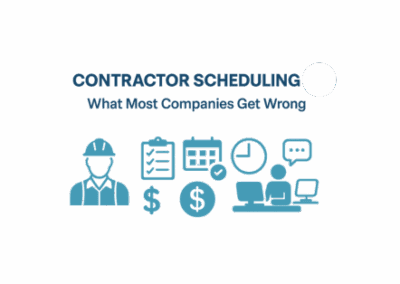We all know employee retention is vital for a successful business. It’s time to understand exactly what is needed to retain your best talent. This is where employee retention surveys come into play. In the following blogpost, we are going to break down how to develop an employee retention survey so you can hold onto your best workers and maximize business performance. Let’s go!
What is an employee retention survey?
An employee retention survey is used to help companies understand the perceptions employees have about the business and to measure the chances of whether employees will stay on. They are really beneficial as management can use the results to inform decisions on reducing turnover, improving employee engagement, and improving performance.

No business wants to lose its top-performing employees to another company. The frustrating thing about having low employee retention is that you may not even know your workers are unhappy until they announce they are leaving. This is why you should act now to find out what your workers think of the business and seek feedback on areas you can improve on.
How to develop an employee retention survey
Employee retention isn’t something that you can fix by doing a one-off survey. It’s an ongoing process and requires commitment and follow-up in order for it to work. This means you should be in constant communication with your team to ensure their needs are being met.
As mentioned, you need to consider this an ongoing process. Consider sending your team an employee retention survey monthly to ensure you are getting up-to-date data. By doing the survey on a monthly basis you will be alerted to when employees are at a higher risk of leaving the company. You can get in contact and try to remedy the situation before they leave for good!
Types of questions to include in your employee retention survey
Ensure you are including a broad range of questions so you get the right kind of information back from the survey. The following types of questions are a good starting point.
Commitment based questions:
Commitment-based questions are used to find out how much loyalty your employees have to your company at the time and if they are at risk of leaving. For example:
– I would recommend working at this company to a friend
– How likely are you to stay in this organization if you were offered the same role at another company?
– How likely are you to be working here in one year?
-Would you reapply for a job here?
When your employee retention survey scores higher for these questions it means your employees are more likely to stay at the organization.
Personal Development based questions

Are your employees getting pay raises, promotions, more responsibilities, training, and education opportunities? If your workers don’t feel like they are learning and progressing they will likely look elsewhere for it. As well as that, if your workers don’t see clear career progression it can be a key reason why they decide to leave. For example:
- Do I feel like I am growing professionally in my role?
- I feel I am being fairly paid
- Can I see a career progression path for me at this company
- I am learning new skills
Employee Satisfaction based questions
Discovering how satisfied a person is in their role from the outset can lead to improved employee retention. Deal with any issues head on before they become bigger issues and be the reason why a person leaves. If employees give poor feedback to this question it can be precursor to them looking for opportunities elsewhere.
- How secure do you feel in your current role?
- Do you feel like you have a good work-life balance?
- What areas do you think the business can improve on?
- How happy are you in your current position
Management based questions
There is a saying that goes, “People leave managers not companies”. You need a good understanding of how employees feel about management. This could be the only way your employee can discuss their manager to someone neutral. Lack of communication between manager and employee leads to lower productivity and unhappiness in the job. So make sure to include a question on this when you are doing your employee retention survey. For example:
- How satisfied are you with your manager’s coaching initiatives?
- Do you feel comfortable communicating with your manager?
The Results
So, you’ve confirmed your questions and sent the employee retention survey out to your employees. Now, you need to examine the data and make a plan to remedy it. When an employee leaves take a look at their old survey responses to identify patterns. This will allow you to see what areas are causing your employees to leave the most and what you need to improve on.

Ensure that you are passing feedback down along the chain of command. If there is a regular response about a certain manager you need to address the situation. Your management are the ones at the frontline so they need to be aware of the responses too.
Finally, once you’ve gathering all your information it’s time to get to work on improving employee retention. Use your responses to implement employee retention strategies. Let your teams know that you have heard them and are making changes. This shows you are listening to what they have to say and will make them valued.
Employee retention surveys are a great way to address your retention issues. Once you can use the data to uncover patterns you can finally improve turnover and create a more engaged workforce.




